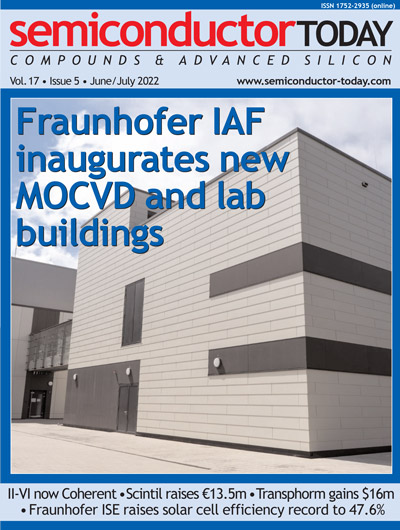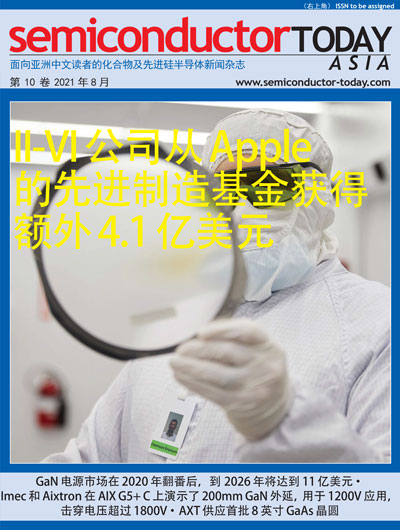- News
21 March 2013
Crystal IS extracts record 65mW cw at 260nm from single-chip UVC LED
Working with the US Army Research Laboratory (ARL), Crystal IS Inc of Green Island, NY, USA, which makes ultraviolet light-emitting diodes (UVC LEDs) grown pseudomorphically (strained) on aluminum nitride (AlN) substrates, has achieved more than 65mW in optical output at 260nm from a single UVC LED operated in continuous-wave (cw) mode (Appl. Phys. Express 6 (2013) 032101).
“By employing die thinning and encapsulation techniques, we were able to increase the photon extraction efficiency to over 15%,” says founder & chief technology officer Leo Schowalter. Furthermore, improved thermal management and a high characteristic temperature resulted in low thermal roll-off up to 300mA injection current with output power of 67mW, an external quantum efficiency (EQE) of 4.9%, and a wall plug efficiency (WPE) of 2.5% for a single-chip UVC LED emitting at 271nm. “By fabricating our LEDs on our home-grown aluminium nitride substrates, we continue to set the pace of what is possible for the combination of highest efficiencies and longest lifetimes in the 250–280nm wavelength range, far surpassing diodes fabricated on sapphire,” Schowalter adds.
“This R&D accomplishment represents a more than six-fold increase in performance from just one year ago,” says CEO Larry Felton. “Our progress in business operations continues on a like pace, readying us and our LEDs for commercial success.”
Light in the UVC wavelength range (200–280nm) can be used for disinfecting water, sterilizing surfaces, destroying harmful micro-organisms in food products and in air, and for spectroscopy applications. Market analyst firm Yole Développement estimates that the UVC lamp market was nearly $200m in 2012, with lamps being replaced increasingly by UV LEDs.
“Our products will address some of the most pressing health concerns of our time,” says Therese Jordan, senior VP of business development. “We are seeing demand in both water and air for the disinfection and quality monitoring aspects of UVC. Similarly, spectroscopic instruments are also taking advantage of the high light output available in a UVC LED,” she adds. “Unlike UV lamps, UVC LEDs are mercury-free, compact, rugged and robust, lending themselves to an array of designs and hold the promise of long life and environmentally friendly end-of-life disposal.”
Engineering samples of UVC LEDs are available from Crystal IS.
Record output for single-chip 262nm mid-UV LED
AlN substrate used to make 260–240nm UV LEDs
Crystal IS Germicidal LEDs UVC LEDs
http://apex.jsap.jp/link?APEX/6/032101



